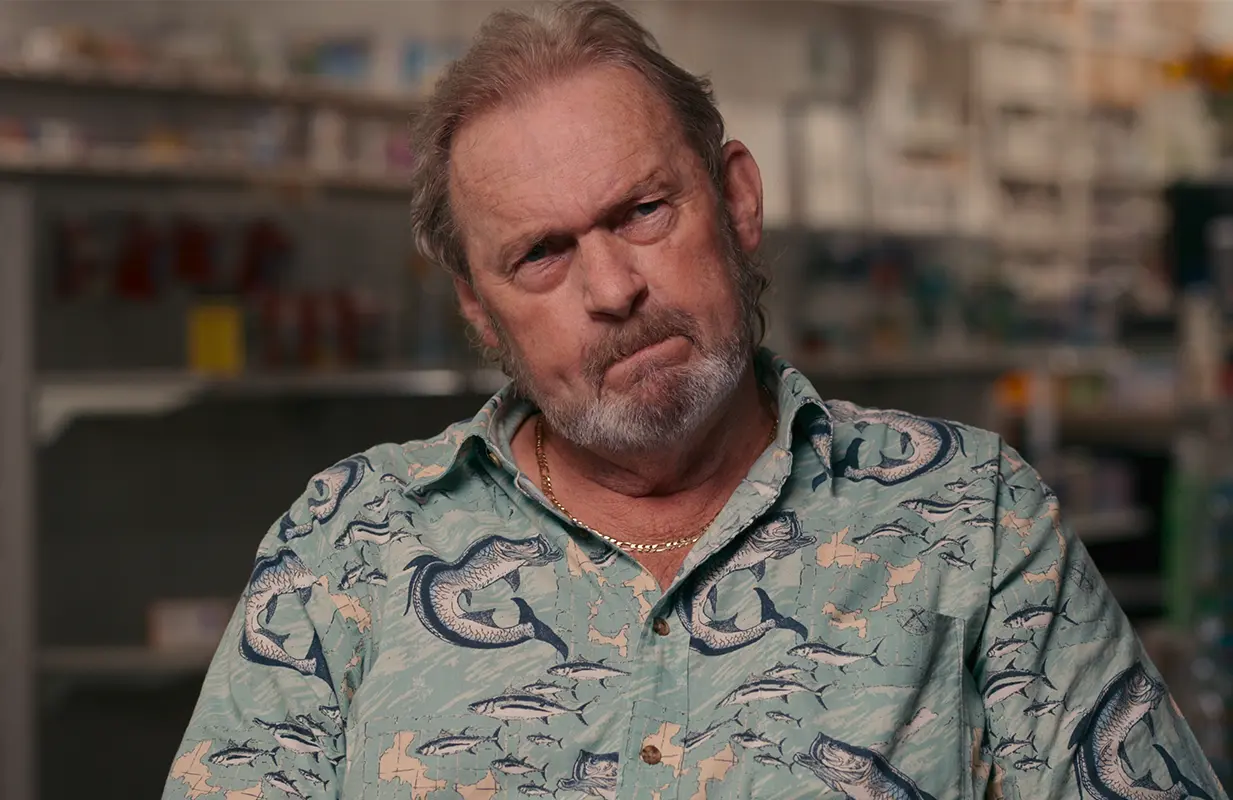Murdaugh Murders Season 2's Problems Go Beyond 'Cousin Eddie' Smith's Interview
-
 Curtis 'Cousin Eddie' Smith in Murdaugh Murders: A Southern Scandal (Photo: Netflix)
Curtis 'Cousin Eddie' Smith in Murdaugh Murders: A Southern Scandal (Photo: Netflix)Murdaugh Murders: A Southern Scandal Season 2 primarily serves as a rehash of Alex Murdaugh's early 2023 trial, but the third episode, "A Tangled Web We Weave," offers something different: a sit-down interview with Curtis "Cousin Eddie" Smith. Smith has spoken to the media in the past, but the Netflix docuseries marks his first major interview since Murdaugh was convicted of murdering his wife Maggie and son Paul in what's been called South Carolina's "trial of the century." It's a big get by directors/executive producers Michael Gasparro and Julia Willoughby Nason, and they make the most of the opportunity, asking Smith about Murdaugh's drug use, his involvement in the suicide-for-hire and check-cashing schemes, and the double homicide.
Smith, who has been charged for his alleged role in the September 2021 shooting, drug trafficking, and money laundering, among other crimes, seems to have an answer for everything. He claims Murdaugh asked him to "shoot and kill" him on the side of the road, but he refused; instead, Smith claims he fired a shot into the air to "scare some sense into him," and Murdaugh "hit the asphalt" in fear, resulting in a minor head injury. Smith also maintains that he "wanted out" of Murdaugh's fraudulent financial dealings — he has been accused of cashing approximately $2.4 million in checks for Murdaugh — but when he told Murdaugh he would no longer be his "errand hand," the prominent attorney made an implicit threat against Smith's daughter. "It was like, 'Does Nicole still work at MUSC [an academic healthcare system in Charleston]?' That kind of deal," he says. "So, 'I've got you here, and I'm going to keep you here.'"
And while he doesn't claim outright that Murdaugh confessed to murdering Maggie and Paul, Smith recalls discussing the events of that night with his longtime friend. "I said, 'Man, what did happen?'" claims Smith. "He said, 'Things just got all f*cked up.' Just like that."
For his part, Smith denies having any knowledge of the murders before this conversation (which took place on the day of the 2021 shooting) or any involvement in Maggie and Paul's deaths. "Ain't no way I could've known that was going to happen and stood by, in good conscience, and let it happen," he says. "Because nobody deserves that."
The filmmakers follow up on each of these allegations and press Smith on the suspicious evidence in the case, including a $24,719 check that was paid to him 10 days before the murders. But they don't ask him about the more unconvincing aspects of his story — such as his claim that he didn't know he was laundering money because Murdaugh told him he was "just doing [him] a favor" — or confront him on his shifting version of events. In the two years since the incident, his recollection of the shooting has been inconsistent: Smith previously said he and Murdaugh got into a scuffle and the gun went off accidentally, which is very different from deliberately firing a bullet into the air.
Smith's interview is reflective of where Murdaugh Murders Season 2 falls short. As Smith tells it, "There was absolutely nobody — nobody — in four or five counties around here that I could've sat down with and told them what was happening, that they wouldn't have locked me up in an insane asylum." He adds that the Murdaughs are so powerful in the South Carolina Lowcountry (or at least they were until Alex Murdaugh's downfall) that the apparatus around them would have protected them, just as it's done for nearly a century. "It was 88 years as solicitor, and they've still got power," he says. "Four generations [of solicitor] in one family? That's unheard of."
Though it's not exactly coming from a trustworthy narrator, Smith's allegation isn't baseless. The successful Murdaugh Murders podcast, which played a key role in publicizing the case, and local news outlets like the Hampton County Guardian and FITSNews have spent years uncovering evidence of widespread corruption in South Carolina's political and legal system. Their dogged work indicates that there's more to the story than Maggie and Paul's murders, the 2019 boat crash that led to the death of Mallory Beach, and the suspicious deaths of Murdaugh housekeeper Gloria Satterfield and Hampton County resident Stephen Smith. In each of these cases, the Murdaughs took advantage of their political connections to avoid punishment or liability — and while Alex Murdaugh is now serving two consecutive life sentences, the institutions that allowed his family to harm so many people remain in place. Smith even says as much in the season's final minutes: "Don't think because he's in jail, it's over with. This is just a bump in the road."
But Murdaugh Murders Season 2 is so focused on revisiting past events (the trial, the days before and after the murders and the roadside shooting) that it loses sight of the fact that this case is about more than just one man and his sins. It's also about a corrupt system that has enabled Alex Murdaugh, and his entire family, for nearly 100 years — and unless future seasons take a cue from the local journalists leading the charge with their reporting, that system will continue to benefit people like the Murdaughs at the expense of the powerless.
Murdaugh Murders: A Southern Scandal Season 2 is now streaming on Netflix. Join the discussion of the show in our forums.
Claire Spellberg Lustig is the Senior Editor at Primetimer and a scholar of The View. Follow her on Twitter at @c_spellberg.
TOPICS: Murdaugh Murders: A Southern Scandal, Netflix, Alex Murdaugh, True Crime